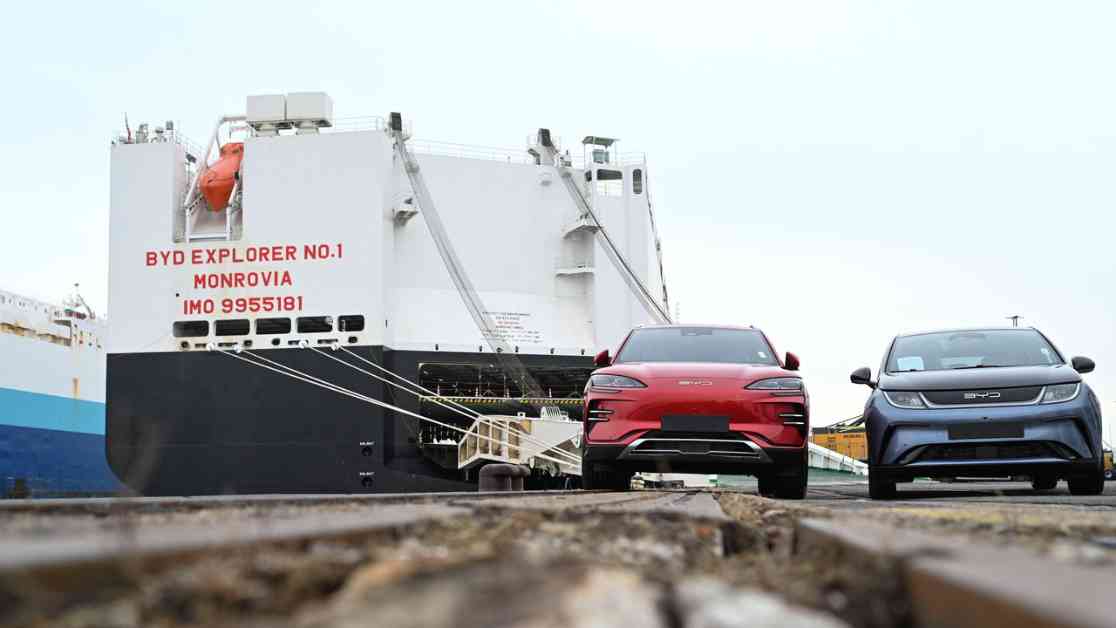EU Imposes Heavy Tariffs on Chinese Automakers
On June 12th, 2024, the European Commission took a bold stance against Chinese automakers by imposing heavy tariffs on their electric vehicles. This move comes after an eight-month investigation that revealed unfair subsidies provided by China through tax breaks and cheap loans, giving Chinese EVs a competitive edge in the European market. The EU fears that this advantage poses a significant threat to European carmakers, leading to a decision to implement provisional tariffs ranging from 26% to 48% on Chinese EVs, compared to the 10% imposed on other imported cars. The exact tariff amount will be determined based on each company’s cooperation with the ongoing investigation.
The Impact on the European Auto Industry
The European Commission’s decision to impose these tariffs reflects a growing concern over the impact of Chinese subsidies on the European auto industry. By leveling the playing field through these tariffs, the EU aims to protect its domestic carmakers from unfair competition and ensure a more equitable market environment for all players. This move is expected to have significant repercussions on the Chinese automakers, who will now face higher costs when exporting their electric vehicles to Europe.
Reactions from Industry Experts
Industry experts have expressed mixed reactions to the EU’s decision to levy heavy tariffs on Chinese automakers. While some applaud the move as a necessary step to safeguard European interests, others warn of potential retaliatory actions from China that could escalate trade tensions between the two economic powerhouses. The coming months will be crucial in determining how both sides navigate this trade dispute and its broader implications for the global automotive industry.
The Future of Electric Vehicles in Europe
As the European Commission takes a firm stance against Chinese automakers, the future of electric vehicles in Europe hangs in the balance. With tariffs now in place, the dynamics of the EV market are set to shift, potentially opening up new opportunities for domestic manufacturers and reshaping the competitive landscape. How this development will unfold remains to be seen, but one thing is certain – the EU’s decision marks a significant turning point in the ongoing debate over fair trade practices in the automotive sector.
In conclusion, the EU’s imposition of heavy tariffs on Chinese automakers sends a clear message about the importance of fair competition and market integrity in the global automotive industry. As both sides navigate the complexities of this trade dispute, the implications for electric vehicle manufacturers, consumers, and the broader economy are vast and far-reaching. The coming weeks and months will reveal the true extent of the impact of these tariffs on the European auto industry and beyond.



















